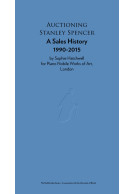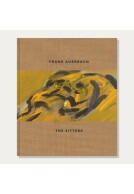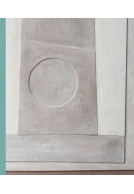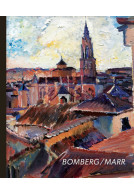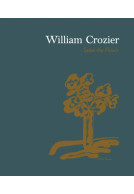John Golding (Paperback)
Finding the Absolute
Imprint: Piano Nobile
Pages: 36
Illustrations: 18 illustrations
ISBN: 9781901192384
Published: 30th January 2015
Pages: 36
Illustrations: 18 illustrations
ISBN: 9781901192384
Published: 30th January 2015
You'll be £12.50 closer to your next £10.00 credit when you purchase John Golding. What's this?
+£4.99 UK Delivery or free UK delivery if order is over £40
(click here for international delivery rates)
Order within the next 6 hours, 9 minutes to get your order processed the next working day!
Need a currency converter? Check XE.com for live rates
(click here for international delivery rates)
Order within the next 6 hours, 9 minutes to get your order processed the next working day!
Need a currency converter? Check XE.com for live rates
John Golding: Finding the Absolute, focusing on Golding’s abstract paintings from the 1960s, offers a unique opportunity to appreciate Golding at the outset of his lifelong pursuit to realise the ever-elusive promise of the absolute through abstraction. These works, most of which have not been seen for nearly half a century, are dynamic, youthful, brimming with the influences of the great exponents of abstraction – Mondrian, Malevich, Pollock, Newman – and palpably created through the artistic language of the 1960s, the decade of swinging Pop and artistic revolution. First published to accompany Piano Nobile's exhibition, John Golding: Finding the Absolute, which ran in conjunction with the Kings Place music programme focusing on Minimalist music, curator and author Dr Charlotte de Mille addresses the overlaps between music and art in Golding's early works. John Golding’s paintings from the mid 1960s focus on questions of form, scale and materiality – the works grouped in this exhibition can be considered as repetitions on a theme as shapes recur in different colours and contexts. These aesthetic resonances with subtle differentiations orchestrate a rhythmic dynamism in composition, and across the space of the exhibition as a whole. Evident in the corresponding music programme, Minimalist compositions originate from similar concerns with theme and variation, the processes and language of composing through subtle variation in repeated motifs, micro-tonalities, and almost hypnotic evocations of time and space. Golding’s paintings share the excitement of innovation and exploration of the mid 1960s born of a common historical context in which modes of expression were reinvented.
Other titles in Piano Nobile...









